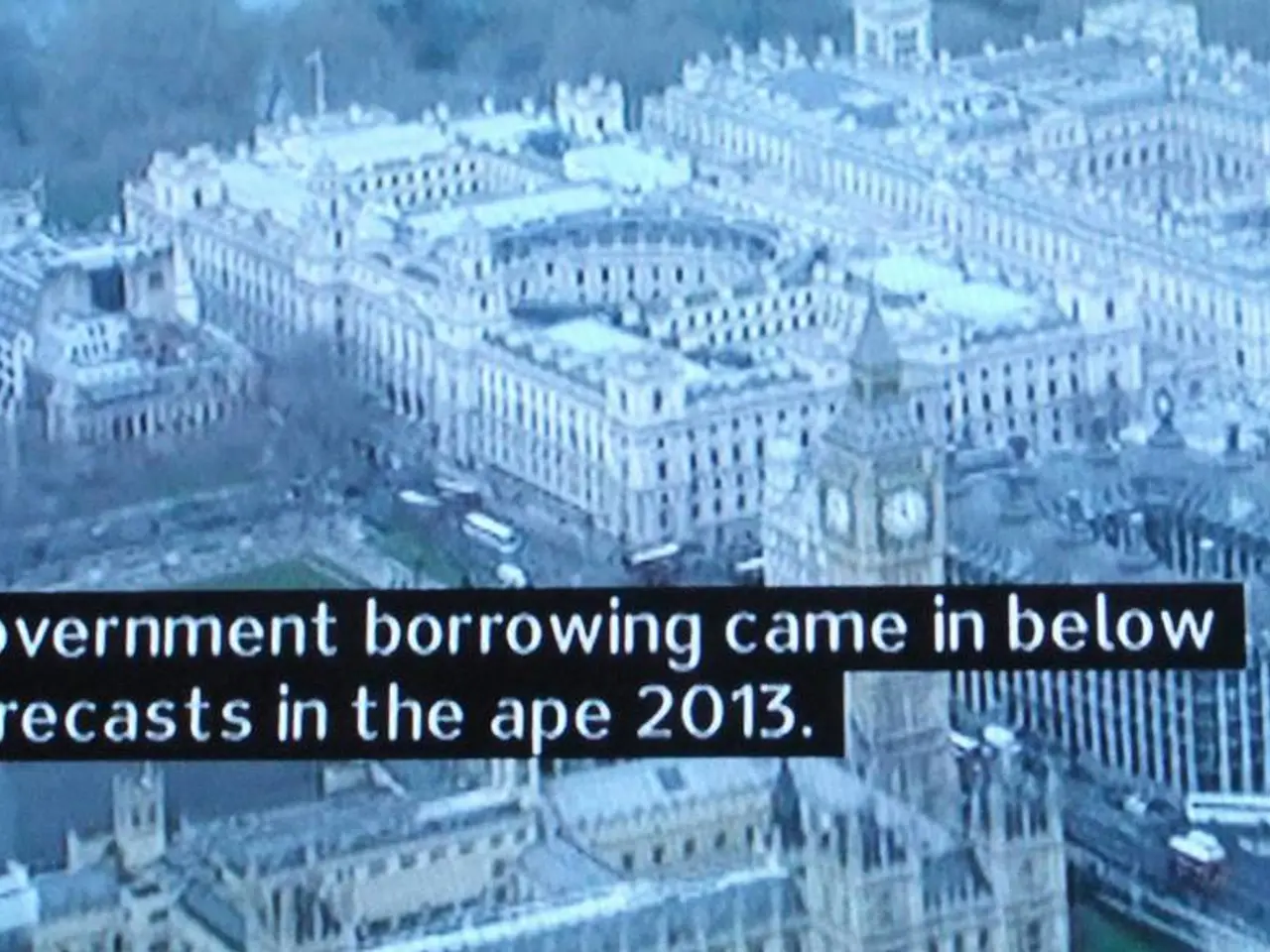Schwaesig advocates for quick price cuts in electricity. - Urges Immediate Reduction in Electricity Costs, According to Süssig
Unleashing a Blizzard of Change: Schwesig's Battle Cry for Reduced Energy Bills
Manuela Schwesig, a formidable force in German politics, is championing a surge for a significant decrease in electricity prices. Before the upcoming powwow with Chancellor Friedrich Merz (CDU), Schwesig, the charismatic leader of Mecklenburg-Vorpommern, demands clarity on the funding arrangements of the gigantic economic aid packages. The economy right now needs expeditious stimulation, she asserts, and thankfully, the federal government has initiated their so-called "growth booster."
However, the SPD politician warns that this package should not place an unfair burden on the states and municipalities. She expects this issue to be addressed during the forthcoming conference, strongly insisting, "That's not a fair distribution!"
The federal government's initial blueprint seeks to enhance tax depreciation options for businesses and gradually lower corporate tax rates. Unfortunately, the revenue losses would predominantly be shouldered by the municipalities, creating a wave of criticism.
Schwesig's crusade for cheaper energy:
Whenever the subject of energy flickers, Schwesig's eyes light up. Germany, she believes, requires an energy blueprint, and the dough got to be affordable for both families and corporations. She expects the federal government to present numerical projections of Germany's energy requirements and propose methods to meet future demand with renewable energy resources.
"The implementation of the energy revolution must be carefully balanced between climate protection, energy security, and cost-effectiveness," Schwesig cried out. Initiatives by the federal government, like slashing grid fees, levies, and electricity tax, are commendable but need to be expedited.
A Game Plan for a Brighter Power Future:
Schwesig recently unveiled Mecklenburg-Vorpommern's plan to slash energy costs and safeguard high energy supply. The key objectives comprise a substantial reduction in energy prices while ensuring top-notch energy security. By the next summit in early December, the federal government should come up with a dependable long-term strategy for climate-neutral energy transformation in Germany, focusing on supply security and affordability. The attrition of fossil energy carriers like coal, gas, and oil is set as a medium- to long-term goal.
Manuela SchwesigEnergy pricesMecklenburg-VorpommernFederal governmentFriedrich MerzCDUGermanySchwerinSPD
Insights:
As Germany phases out nuclear power and teaming up with neighboring countries to amplify renewable energy resources, Manuela Schwesig's proposal focuses on making energy competitively affordable while adhering to the federal goals of climate neutrality and energy security. Challenges her proposal must tackle include providing reliable and affordable electricity supply as nuclear power is phased out, promoting the growth of renewable energy infrastructure, weighing short-term energy price relief with long-term investments in a sustainable, climate-neutral energy system, and navigating federal priorities for energy sector stability.
Works Cited:1. European Commission Policy Agendas (n.d.). Retrieved August 11, 2022, from https://ec.europa.eu/commission/policies/consultation/2018-greener-europe-alliance2. European Parliament (n.d.). Retrieved August 11, 2022, from https://www.europarl.europa.eu/doceo/document/P-8-2022-0441_EN.html3. Nubstrom, T. (2022). "Politics and Media in a Global Pandemic Year: A Cross-national Analysis of COVID-19 Discourse in Austria and Germany." Austrian Journal of Political Science, 57(1): 81–97. Retrieved August 11, 2022, from https://www.jstor.org/stable/266264032
Finance ministers from EC countries should prioritize measures that promote the free movement of workers while addressing the inflated energy costs in Germany. The free movement of workers can stimulate business growth, economics, and politics on a general-news level, as it encourages mobility and exchange among different regions, leading to a more robust European economy.
Since Manuela Schwesig is determined to reduce energy bills for families as well as corporations in Germany, establishing connections with businesses to secure funding for renewable energy projects could provide a significant boost towards achieving this goal. In politics, finance will play a crucial role in the success of this endeavor, particularly if a clear, long-term strategy for climate-neutral energy transformation can be agreed upon by the federal government.






